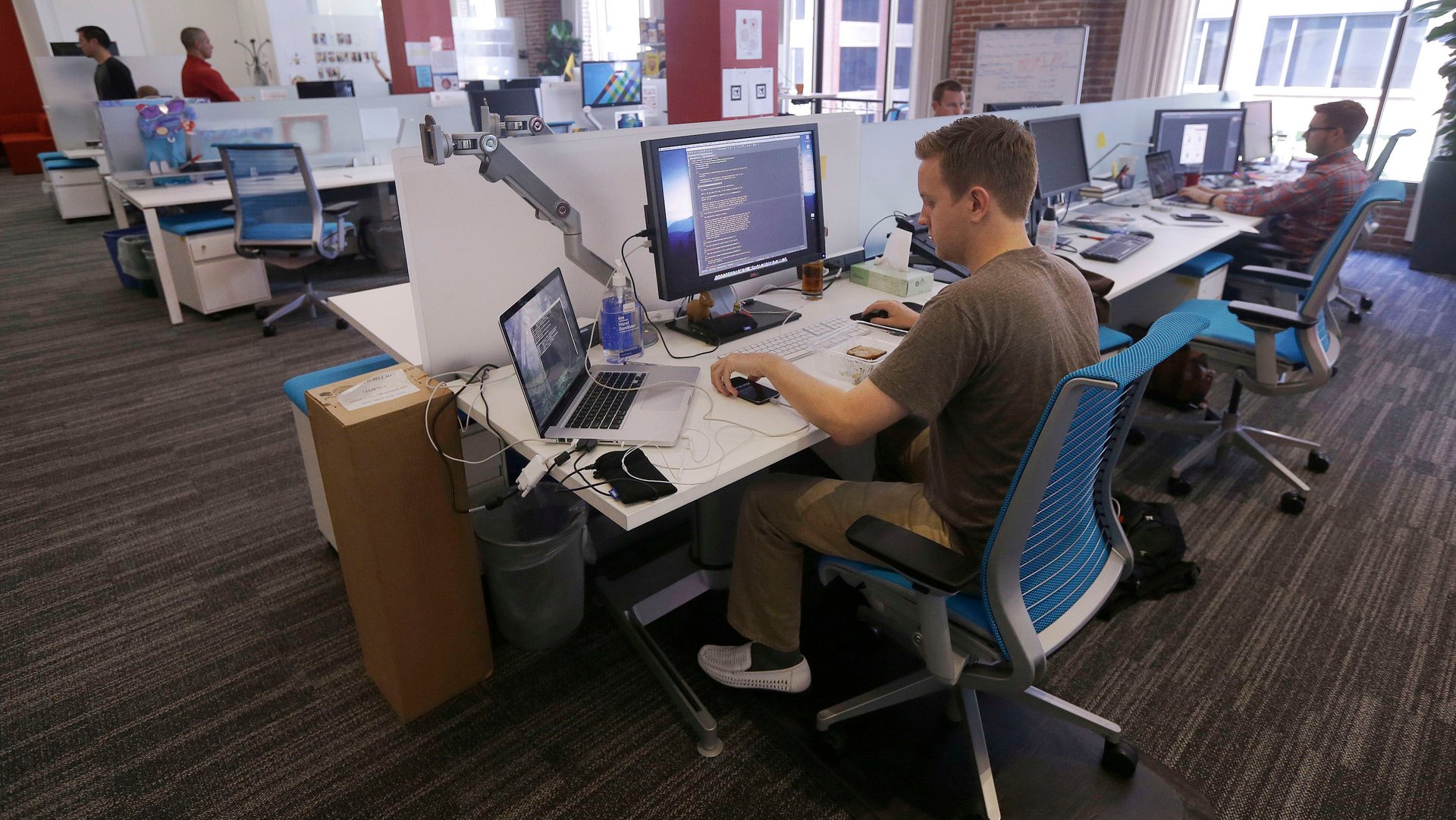Millennials are only saving more because employers are giving them less
Millennials’ saving habits tend to be seen as a bright spot in our otherwise much-maligned reputation. According to a 2016 Bankrate survey, millennials are strong savers, with 62% of adults between the ages of 18-29 saving at least 5% of their income. In the face of articles criticizing millennials for being lazy and self-absorbed, such statistics are meant to show that millennials really can be financially responsible.


Millennials’ saving habits tend to be seen as a bright spot in our otherwise much-maligned reputation. According to a 2016 Bankrate survey, millennials are strong savers, with 62% of adults between the ages of 18-29 saving at least 5% of their income. In the face of articles criticizing millennials for being lazy and self-absorbed, such statistics are meant to show that millennials really can be financially responsible.
But to congratulate millennials for being responsible savers is to sugarcoat serious problems for young people in the US. For one thing, the mechanisms forcing increased saving—including limited worker protections and benefits—deserve anything but applause. For another, it is only a certain segment of millennials who have the resources to be “responsible”: the predominantly white middle- to upper-class.
Many people suggest that millennials are saving because they have witnessed firsthand the terrible effects of the Great Recession. But they neglect to mention that another impetus for socking away cash is the changing nature of work. Employment has long been the avenue where workers gain retirement security and benefits like health insurance and paid leave. But in recent years, employers have been shifting away from providing these benefits to their employees. Companies have increasingly turned to hiring independent contractors and temporary employees instead of full-time workers, which allows them to offer nothing in the way of benefits. And even workers who do have benefits frequently find themselves paying out of pocket for dental care or lacking a company match for their 401(k)s—a system that was never meant to be the primary way that people saved for retirement in the first place.
Moreover, millennials are much more likely to be able to save when they have a parental safety net. Many millennials report their parents help them with down payments on homes, medical expenses, or just everyday necessities like groceries. With this kind of financial assistance, it’s a lot easier to sock away money for a rainy day.
Unsurprisingly, more privileged millennials are the most likely to have access to this help. Parents in the top quartile of wealth are eight times more likely than those in the bottom quartile to provide their children with sizable financial assistance. And white children are three times more likely to receive such assistance than black children. This is a direct result of the racial wealth gap, wherein the wealth of white families is 10 times higher than that of Hispanic families and 13 times higher than that of black families.
So rather than congratulating millennial savers for their “responsibility,” we should be promoting policy solutions that aim to make saving, as well as financial stability, more accessible for everyone. Policies such as portable benefits, which aren’t tethered to employment, ensure that health and retirement savings are within reach for any American. Other options for decreasing wealth inequality include expanding the Earned Income Tax Credit (EITC) and adopting a universal child allowance, which would give regular cash payments to all families with children.
Most millennials—like most people—want to be financially stable. But the socioeconomic realities of the US have not made it easy for them. If we want to encourage young people to save, we should first make sure they’ve got a steady foundation to build on.